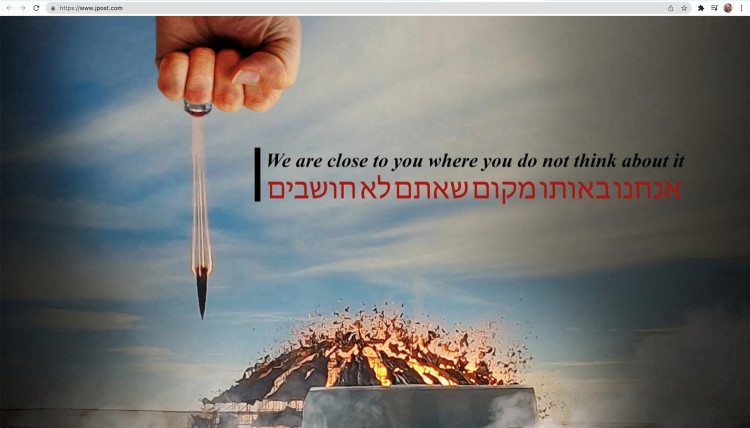A popular Israeli news website and its official Twitter account were taken over by hackers Monday, allegedly, by "pro-Iranian hackers." The Jerusalem Post confirmed that its site and social media account were compromised.
The news and media site said that hackers had used its accounts to post an ominous image that showed the Israeli Dimona nuclear facility being attacked by missiles. A threatening note was also left on the image, which warned Israel that its enemies were "close" and in places where they least expect them to be.
The hack occurred on the anniversary of the death of Qassem Soleimani, who was killed by a U.S. drone strike at the Baghdad International Airport on Jan. 2, 2020. Solemani was the head of the Revolutionary Guard's elite Quds Force, which was, reportedly, responsible for the deaths of hundreds of U.S. troops.
Hackers had made it clear that the attack was partly commemorating Solemani's death. The image showed what appeared to be a ring known to have been worn by Solemani during his death.
Hours before U.S. drones launched Hellfire missiles on the Iranian general last year, Israel was revealed to have given three mobile phone numbers used by Soleimani to U.S. intelligence officers. The revelation further fueled animosity between the two countries, given Israel's alleged participation in the assassination of Soleimani.
The Jerusalem Post said that it was aware of the cyberattack on its website and its social media account. The English-language newspaper said that the hack, which it says is a direct threat to Israel, is now being addressed, and they are now working to track down the perpetrators.
Last week, the paper acknowledged that it had received reports that Iran had been distributing an edited video that showed how devastating a missile attack on the nuclear facility would be.
The paper, which cited a report published by the semi-official Fars News Agency, said the video clip showed the facility being hit by 16 ballistic missiles and five drones carrying improvised explosives. Distributors of the video with the simulated attack called it a "new level of Iranian aggressive threats."
A long-form article published by the New Yorker showed how Iran now has the capability of successfully deploying ballistic missiles to attack targets in Israel as retaliation.
U.S. Central Command Gen. Kenneth McKenzie previously said that Iran's ballistic missiles have now become a greater and more imminent threat compared to its nuclear program. McKenzie added that Iran could at any time successfully deploy missiles anywhere within the Middle East.





